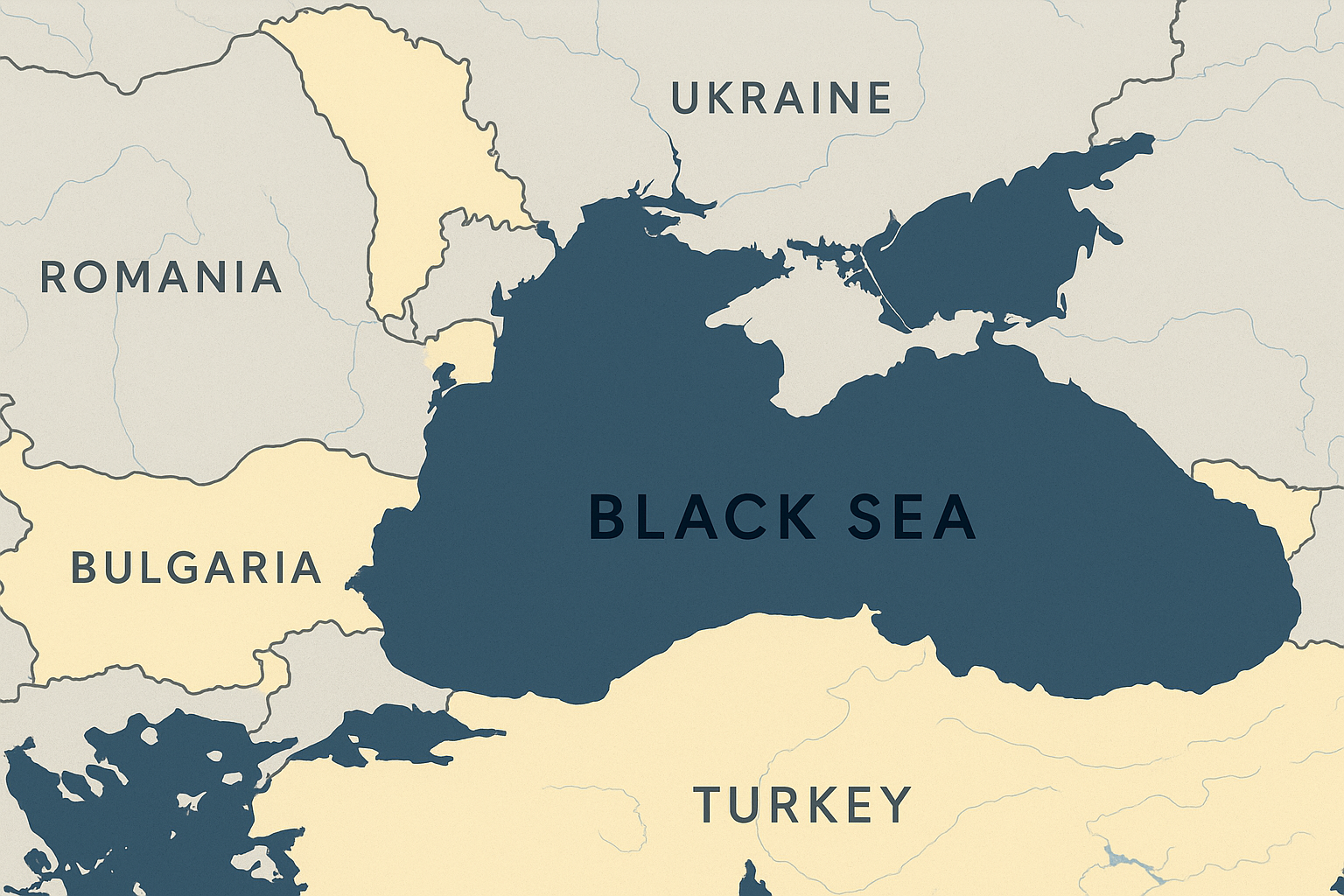On May 29, 2025, the European Commission unveiled its Strategic Approach to the Black Sea, a long-anticipated roadmap that repositions this once-overlooked region at the heart of European and global security planning. For years, Romania and its neighbors have argued that the Black Sea is not a peripheral space but a strategic frontier where security, resilience, and geopolitical influence converge. This new strategy finally acknowledges that reality and begins to articulate a more integrated vision of what security entails in the twenty-first century.
Far from being a traditional defense blueprint, the strategy proposes a layered understanding of security that incorporates climate adaptation, infrastructure resilience, maritime domain awareness, and the growing threats posed by disinformation and cyberwarfare. For Romania, it affirms a crucial role as both a frontline state and a stabilizing actor within a wider European framework. For the global community, the strategy offers a new template for confronting multipolar instability through multidimensional cooperation.
The Geopolitical Context
The renewed urgency around the Black Sea stems largely from Russia’s 2022 invasion of Ukraine. The war violated international law and human rights and disrupted maritime trade, energy transit, and civilian infrastructure across the wider Black Sea basin. Russian control over Crimea and increasing naval aggression have turned the Black Sea into a contested zone, one where European security is no longer a theoretical concern but a lived experience. The EU’s new approach explicitly recognizes these developments and commits to establishing a Black Sea Maritime Security Surveillance Hub, enhancing critical infrastructure, and deepening coordination with partner countries. It is a response not only to Moscow’s expansionism but also to the larger challenge of building resilience in a volatile neighborhood.
Romania’s Strategic Role
For Romania, this shift is both long overdue and deeply consequential. Positioned at the crossroads of the Danube River and the Black Sea, Romania is uniquely situated to act as a bridge between Europe and the South Caucasus, between the EU and its Eastern Partners. The country has long invested in its port facilities in Constanța, expanded its military cooperation with NATO, and advocated for stronger EU engagement in the region. The new strategy reinforces Romania’s position as a linchpin in this emerging architecture. Hosting parts of the maritime hub, integrating into new overland and maritime trade corridors, and advancing climate and security cooperation all place Romania at the forefront of EU resilience-building. Yet this visibility also brings new responsibilities, particularly in balancing deterrence and diplomacy while managing the vulnerabilities of an exposed eastern frontier.
Security Beyond the Battlefield
The document is notable for its multidimensional framing of what security means today. Rather than defining security strictly in military terms, the EU’s approach blends ecological resilience, economic connectivity, and civil preparedness into a comprehensive framework. Environmental threats such as sea-level rise, coastal erosion, and pollution are treated not as distant climate concerns, but as active components of regional fragility. Economic corridors, especially those linking Europe to the South Caucasus and Central Asia, are positioned as alternatives to Russian-controlled routes, reinforcing the idea that security also depends on trade, infrastructure, and diversification. In parallel, the strategy calls for stronger counter-hybrid measures, including protection for undersea cables, improved cybersecurity in port facilities, and coordinated responses to disinformation.
Implications for Global Security
Viewed from a global security perspective, the EU’s Strategic Approach to the Black Sea represents more than just regional recalibration. It signals a conceptual shift in the EU’s role as a global actor that combines soft power instruments with geostrategic awareness. The strategy challenges authoritarian influence by providing an alternative model of governance and investment. It reinforces multilateralism by working in tandem with NATO without duplicating military efforts. And it champions democratic values through its emphasis on rule of law, civil society support, and the prevention of corruption. These priorities echo beyond Europe, offering a framework for how regional powers can build stability through cooperation, inclusion, and long-term planning.
An Open Question of Implementation
Nonetheless, the strategy’s ambition must be matched by implementation. Without sustained funding, member state buy-in, and clear coordination with NATO and other partners, its impact risks being symbolic rather than structural. There are open questions about how deeply the EU can engage in hard security, especially when deterrence still relies on NATO’s military umbrella. And while the strategy is rich in vision, its success will ultimately depend on whether the people of the region, Ukrainians, Romanians, Moldovans, Georgians and Turks, experience tangible improvements in their security, livelihoods, and democratic institutions.
From Fieldwork to Policy: A Personal Perspective
As a Fulbright researcher conducting fieldwork in Romania’s Danube Delta, I have spent the past year listening to residents whose daily lives are shaped by the very security challenges this strategy seeks to address (climate uncertainty, economic marginalization), and a sense of distance from political decision-making. My work has shown me that true security does not begin with institutions; it begins with people. In villages like Sfântu Gheorghe and Periprava, resilience is not a buzzword: it is a lived practice, passed down through generations who have learned to adapt to both ecological and political pressures. This strategy, if implemented thoughtfully, has the potential to amplify those local forms of resilience and finally bring them into the center of European policymaking. Security in the Black Sea region must mean more than deterrence. It must mean dignity, opportunity, and the right to shape one’s own future.
Reference
European Commission. EU Strategic Approach to the Black Sea. Brussels: Directorate-General for Neighbourhood and Enlargement Negotiations, May 28, 2025. https://enlargement.ec.europa.eu/document/download/170d9b3a-d45f-4169-80fa-9adb753c0921_en?filename=EU%20Strategic%20Approach%20Black%20Sea%20Strategy.pdf.

